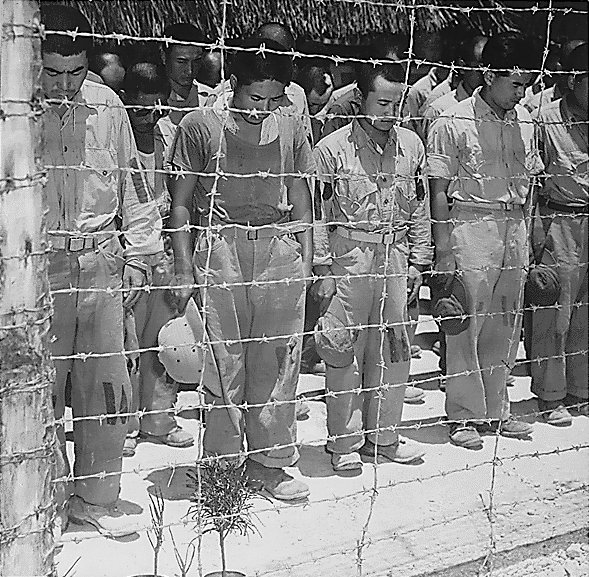









Unconditional surrender has historically marked pivotal moments in warfare, where a belligerent state relinquishes all resistance without negotiation. This concept, deeply rooted in military strategy, has implications for both historical and contemporary conflicts, shaping the landscape of international relations.
Understanding Unconditional Surrender
Unconditional surrender is a term that signifies a complete capitulation without any conditions or negotiations. The concept emerged prominently during World War II, but its roots can be traced back through various conflicts in history. Understanding the implications of unconditional surrender involves examining its historical context, tactical advantages, and the psychological effects on both victors and vanquished.
Historical Context
-
World War II: The phrase gained substantial notoriety when Allied leaders, including President Franklin D. Roosevelt and British Prime Minister Winston Churchill, declared it as an objective in their fight against Axis powers. This declaration served to unify the Allies and rejected any notion of negotiated peace with Nazi Germany or Imperial Japan.
-
Previous Examples: The concept can also be seen during the American Civil War, particularly in General Ulysses S. Grant's strategy against Confederate General Robert E. Lee. The surrender at Appomattox Court House in 1865, while not officially labeled as "unconditional," effectively marked the end of major hostilities in the conflict.
Tactical Advantages
-
Decisive Victory: Unconditional surrender often leads to a decisive end to conflict, preventing the possibility of a resurgence by the defeated party. By eliminating terms for negotiation, the victors can impose their will on the defeated without fear of a counter-offensive.
-
Psychological Warfare: The declaration of unconditional surrender can serve as a powerful weapon in psychological warfare. It demoralizes enemy combatants and civilians alike, cultivating an atmosphere of hopelessness among the opposition.
-
Reconstruction and Reconciliation: While unconditional surrender may seem harsh, it can facilitate a clearer path towards post-war reconstruction. The victors can enforce policies that stabilize and rebuild the defeated territory, as seen in the Marshall Plan in post-war Europe.
Contemporary Implications
-
Modern Warfare: In an era of asymmetric warfare and terrorism, the application of unconditional surrender is more complex. Non-state actors may not adhere to traditional notions of surrender. The concept becomes less applicable in conflicts involving insurgencies or entities without a centralized command structure.
-
Diplomatic Relations: The principles of unconditional surrender also raise ethical questions in contemporary diplomacy. What does it mean for a nation to demand unconditional surrender from another? The potential for exacerbating tensions and creating long-term animosities must be considered.
-
Nuclear Considerations: In the context of nuclear deterrence, the stakes of unconditional surrender have escalated. A nation facing existential threats may prefer to fight to the last rather than surrender unconditionally, as seen in Cold War dynamics.
Case Studies
-
Japan in World War II: The unconditional surrender of Japan in 1945 not only marked the end of the Pacific War but also led to significant geopolitical shifts. The subsequent occupation and democratization of Japan stand as a testament to the complexities of enforcing unconditional surrender.
-
Germany in World War II: Germany’s surrender in May 1945 initiated a process of division and occupation that would shape the Cold War landscape. The outcomes of unconditional surrender in this context serve as a reminder of the long-term consequences of military defeat.
-
Iraq War: The U.S.-led invasion of Iraq in 2003 led to the toppling of Saddam Hussein. However, the lack of a clear post-surrender strategy revealed the drawbacks of imposing unconditional terms on a regime without addressing the underlying social and political complexities.
The Future of Unconditional Surrender
-
Evolving Definitions: As international law evolves, so too does the interpretation of surrender. The emergence of global institutions like the United Nations has redefined the parameters of conflict resolution, making the blanket application of unconditional surrender less common.
-
Negotiated Settlements: The preference for negotiated settlements in modern conflicts suggests a shift away from the stark dichotomy of unconditional surrender. Diplomacy is often viewed as a more sustainable path to conflict resolution rather than outright military victory.
Conclusion
The concept of unconditional surrender remains a powerful element of military strategy and international relations. While it has historically led to decisive victories, the complexities of modern warfare and diplomacy challenge its application. As we reflect on past conflicts and consider future implications, the balance between the necessity of decisive military action and the pursuit of diplomatic solutions becomes increasingly critical. Unconditional surrender may be a relic of the past, but its influence continues to reverberate in contemporary discussions on war and peace.
